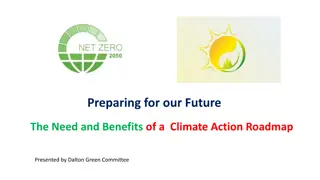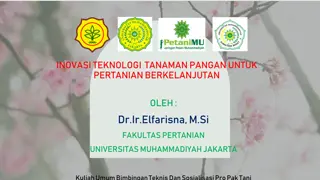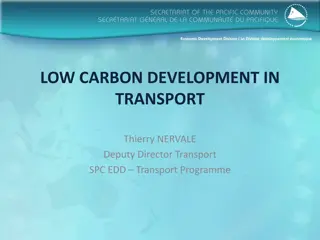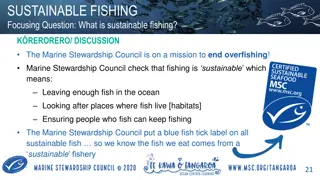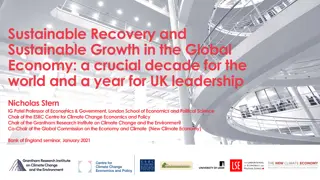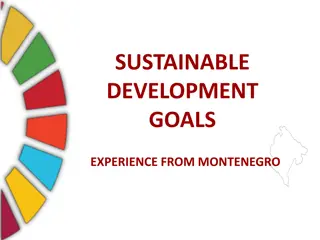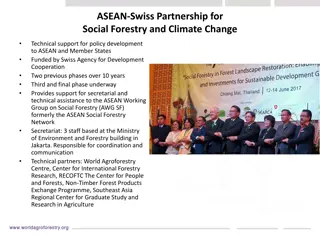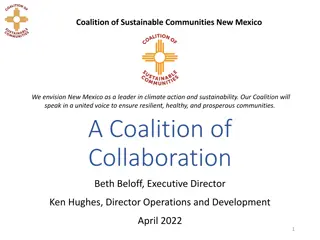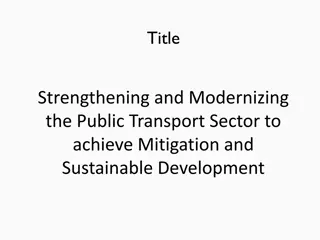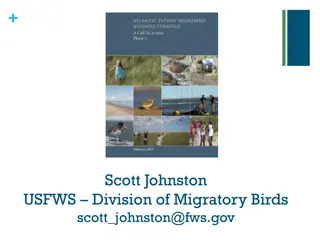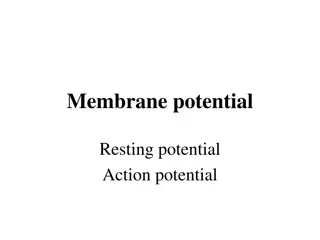Urgent Action for Sustainable Development
The continued use of the earth and its ecosystems without regard for their limits is pushing the planet to a breaking point. Urgent action is needed to transition to sustainable development, involving changes in social values and technical solutions.
Download Presentation

Please find below an Image/Link to download the presentation.
The content on the website is provided AS IS for your information and personal use only. It may not be sold, licensed, or shared on other websites without obtaining consent from the author.If you encounter any issues during the download, it is possible that the publisher has removed the file from their server.
You are allowed to download the files provided on this website for personal or commercial use, subject to the condition that they are used lawfully. All files are the property of their respective owners.
The content on the website is provided AS IS for your information and personal use only. It may not be sold, licensed, or shared on other websites without obtaining consent from the author.
E N D
Presentation Transcript
The continued use of the earth and its ecosystem as if it were an infinite source of resources and a boundless sink for our waste is leading to a situation in which the planet will not be able to continue to support its people. Moreover, these resources are used in such a way that many people of the Earth, and especially many in the region (Asia Pacific), are living in extreme poverty.
The situation is desperate and urgent action to move to sustainable development is required. This action will require changes in social values and practices, as well as technical solutions.
200 ( ) 0.98 1.26 1.65 1.75 1.86 2.07 1800 1850 1900 1910 1920 1930 1940 2.30 1950 1960 1970 1980 1990 1999 2000 2010 2.52 3.02 3.70 4.44 5.27 5.98 6.06 6.79
2008 - 1972
Planet Under Pressure London, 2012 Rio +20 UN Conference on Sustainability, 2012
Planet Under Pressure, Vision Based on the latest scientific evidence, the London Planet Under Pressure conference will provide a comprehensive update of our knowledge of the Earth system and the pressure our planet is now under. The London conference will focus the scientific community s and the wider world s attention on climate, ecological degradation, human well-being, planetary thresholds, food security, energy, governance across scales and poverty alleviation.
The conference will discuss solutions, at all scales, to move societies on to a sustainable pathway. It will provide scientific leadership towards the 2012 UN Rio +20 conference, also in 2012. The programme will be designed to attract senior policymakers, industry leaders, NGOs, young scientists, the media, health specialists, and academics from many disciplines.
Rio+20 Policy Briefs Nine policy briefs are produced by the scientific community to inform the United Nations Conference on Sustainable Development (Rio+20). These policy briefs are commissioned by the international conference on Planet Under Pressure : New Knowledge Towards Solutions (www.planetunderpressure2012.net).
Water security for a planet under pressure Summary of key points and policy recommendations Water must be given the prominence it deserves on the global agenda; the future should be viewed through a water lens . Finding sustainable solutions for water problems is a joint obligation for science and policy; however science cannot solve the water crisis without societal engagement and political will.
Human and environmental water needs must be balanced to safeguard biodiversity and ecosystem services. compromises should be mediated by science rather than lobbies. Unavoidable Water security has multiple dimensions, including social, humanitarian, economic and ecological. Major decisions on water resource management must be made therefore with broad cross-sectoral input.
There is a need to improve the availability of data and information, particularly on transboundary water resources and planetary thresholds. We need to evaluate our water needs and prioritize allocations. Water-related climate change adaptation should be an integral part of water resources management plans (and vice versa).
There is a need for greater stakeholder participation and collective action. Urbanization can be interpreted as an opportunity, rather than a risk. There is a need to introduce and implement strong policy and legal frameworks (i.e. water laws). Proper finance mechanisms are required to ensure sustainability of water services, while capacity building is required at all levels.
Food security for a planet under pressure Summary of key points and policy recommendations The food security challenges : Food security is fundamentally linked to both socioeconomic systems and environmental conditions. Changes in climate and in other key environmental factors will significantly complicate the achievement of food security for all.
It is imperative to reduce hunger and poverty in the context of structural shifts in demand and supply, driven by population growth, income growth and global environmental change. The challenges of food security, natural resource use and environmental change call for countries to renew their efforts to work together in the management of global public goods.
Adopting a food systems approach: A food systems approach links the activities of producing, processing, retailing and consuming food with the outcomes of these activities for food security and other societal goals. A food systems approach can help to show how food insecurity arises and also provides a framework for policy development to meet the food security challenge.
A food systems approach provides a framework for multiscale, multi-level analyses of the dynamic linkages between food security, environmental concerns and development issues. Food trade needs to be enhanced to encourage secure access to nutritious food for the poorest and most vulnerable. Novel institutional arrangements together with innovating and enabling policies will promote cooperation between public and private investors in food systems.
Food systems of the future will need to enhance food security while minimizing further environmental degradation. Multiple pathways will be needed to deliver a greener economy and greener food systems; these include reducing waste at all stages of the food system and greater involvement of the private sector in planning and decision making. There is an urgent need to develop technologies and policies that will result in sustainable production practices.
More integrated planning and greater cross- system coherence across the global food security agenda are needed. A transition to healthier diets as societies grow richer is needed to reduce both environmental and public health burdens.
Meeting the challenge: Food systems of the future will need to enhance food security while minimizing further environmental degradation. Multiple pathways will be needed to deliver a greener economy and greener food systems; these include reducing waste at all stages of the food system and greater involvement of the private sector in planning and decision making.
There is an urgent need to develop technologies and policies that will result in sustainable production practices. More integrated planning and greater cross- system coherence across the global food security agenda are needed. A transition to healthier diets as societies grow richer is needed to reduce both environmental and public health burdens.
Transforming governance and institutions for a planet under pressure Summary of key points and policy recommendations Strengthen international environmental treaties: Governments must engage in structural reforms in how international environmental negotiations are conducted and treaties designed. Present and future treaties must rely more on systems of qualified majority voting in specified areas.
Manage conflicts among multilateral agreements: International economic institutions must advance transitions to a sustainable economy, including by multilaterally harmonized systems that allow for discriminating between products on the basis of production processes, based on multilateral agreement. Global trade and investment regimes must be embedded in a normative context of social, developmental, and environmental values.
Fill regulatory gaps in international sustainability governance: New or strengthened international regulatory frameworks are needed in several areas, including on emerging technologies, water, food, and energy. Upgrade UNEP: Governments need to engage in negotiations for the up-grading of UNEP to a specialized UN agency, along the lines of the World Health Organization or the International Labour Organization.
Better integrate sustainable development policies within the UN system: Governments need to support overall integrative mechanisms within the UN system that better align the social, economic and environmental pillars of sustainable development. Strengthen national governance: New policy instruments are a promising complement to regulation if carefully designed. But they are not panaceas.
Streamline and strengthen publicprivate governance networks and partnerships: The CSD and other bodies need a stronger mandate and better methodologies for the verification and monitoring of partnerships. Despite the growing role of non-state actors, there is still a strong need for effective and decisive governmental action.
Strengthen accountability and legitimacy: Novel accountability mechanisms are needed, including mandatory disclosure of accessible, comprehensible and comparable data about government and corporate sustainability performance. Stronger consultative rights for civil society representatives in intergovernmental institutions should be introduced.
Address equity concerns within and among countries: Equity concerns must be at the heart of the institutional framework for sustainable development. High consumption levels in industrialized countries and in some parts of the emerging economies require special and urgent action. Financial transfers from richer to poorer countries are inevitable, either through direct support payments for mitigation and adaptation programmes or through international market mechanisms, for example global emissions markets.
Prepare global governance for a warmer world: Global adaptation programmes need to become a core concern of the UN system and governments.
Biodiversity and ecosystems for a planet under pressure Summary of key points and policy recommendations Strengthen international environmental treaties: Governments must engage in structural reforms in how international environmental negotiations are conducted and treaties designed. Present and future treaties must rely more on systems of qualified majority voting in specified areas.
Manage conflicts among multilateral agreements: International economic institutions must advance transitions to a sustainable economy, including by multilaterally harmonized systems that allow for discriminating between products on the basis of production processes, based on multilateral agreement. Global trade and investment regimes must be embedded in a normative context of social, developmental, and environmental values.
Fill regulatory gaps in international sustainability governance: New or strengthened international regulatory frameworks are needed in several areas, including on emerging technologies, water, food, and energy. Upgrade UNEP: Governments need to engage in negotiations for the up-grading of UNEP to a specialized UN agency, along the lines of the World Health Organization or the International Labour Organization.
Better integrate sustainable development policies within the UN system: Governments need to support overall integrative mechanisms within the UN system that better align the social, economic and environmental pillars of sustainable development. Strengthen national governance: New policy instruments are a promising complement to regulation if carefully designed. But they are not panaceas.
Streamline and strengthen publicprivate governance networks and partnerships: The CSD and other bodies need a stronger mandate and better methodologies for the verification and monitoring of partnerships. Despite the growing role of non-state actors, there is still a strong need for effective and decisive governmental action.
Strengthen accountability and legitimacy: Novel accountability mechanisms are needed, including mandatory disclosure of accessible, comprehensible and comparable data about government and corporate sustainability performance. Stronger consultative rights for civil society representatives in intergovernmental institutions should be introduced.
Address equity concerns within and among countries: Equity concerns must be at the heart of the institutional framework for sustainable development. High consumption levels in industrialized countries and in some parts of the emerging economies require special and urgent action. Financial transfers from richer to poorer countries are inevitable, either through direct support payments for mitigation and adaptation programmes or through international market mechanisms, for example global emissions markets.
Prepare global governance for a warmer world: Global adaptation programmes need to become a core concern of the UN system and governments.



